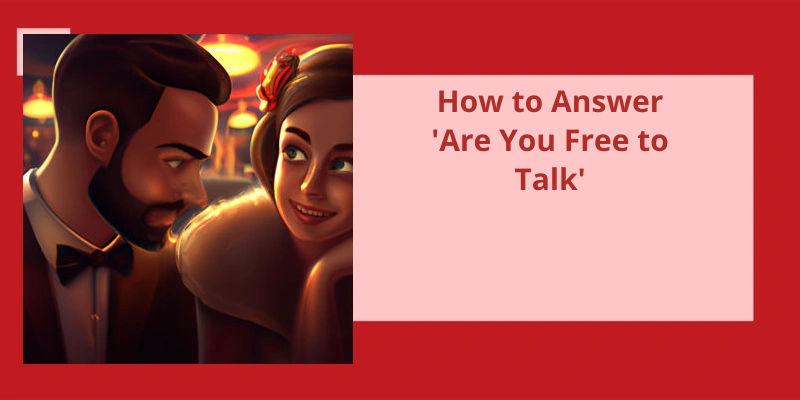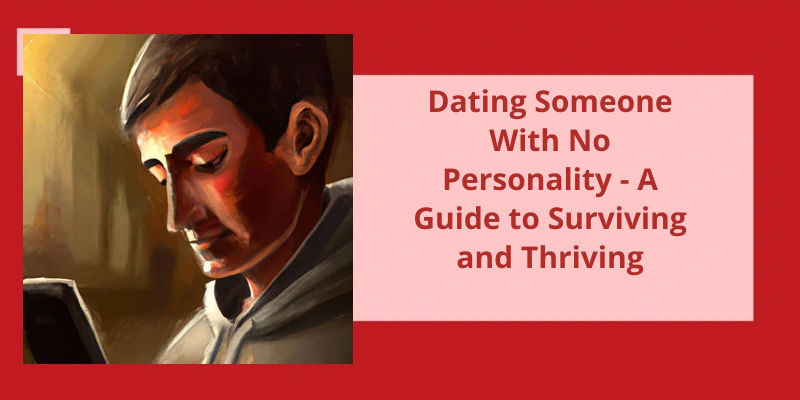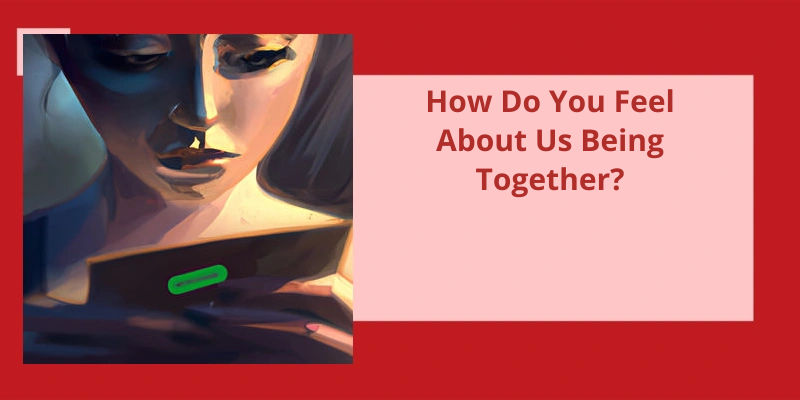As social beings, we often find ourselves in situations where we’re required to communicate with others. In many cases, we may have to respond to an inquiry regarding our availability for conversation. One such inquiry is "Are you free to talk?" This question seems simple enough, but the response to it can impact the outcome of a conversation. Answering this question may depend on various factors such as the environment, relationship with the person, and the message's urgency. When answering this question, it’s essential to consider the context carefully, weigh the pros and cons, and ensure that the response aligns with your goals and values.
Is It Polite to Say Feel Free To?
While “feel free to” is a commonly used phrase, there’s been some debate about whether it’s truly considered polite or not. On one hand, it can come across as a friendly and inviting way to encourage someone to take a desired action. It can make the other person feel more comfortable and at ease, especially if they may have been hesitant to ask or take before.
For some people, it may come across as overly formal or even cold, whereas others may appreciate the politeness and openness it conveys. In general, it’s important to use language that’s appropriate for the situation and take into account the relationship and communication style of the person you’re addressing.
It’s important to consider the context, relationship, and tone of the conversation when deciding how to communicate your message. Ultimately, the goal should be to convey your message in a way that’s genuine, clear, and respectful to the other person.
When it comes to initiating a conversation with someone, it’s essential to know how to ask for their time politely. While there are several ways to do so, it’s vital to choose your words carefully to avoid sounding intrusive or disrespectful. In this article, we explore some effective ways to ask for someone’s time without coming across as pushy or presumptuous.
How Do You Ask When We Can Talk?
When it comes to asking when we can talk, there are a few different ways to go about it depending on the situation. If youre looking to have a private conversation with someone, it’s best to use a more formal approach such as “Could I’ve a word with you?”. This will signal to the other person that you want to speak with them in a more confidential setting, and give them the opportunity to find a quieter location away from a group.
Alternatively, if you simply want to check in with someone and see if they’ve time to talk, you might use a more casual phrase such as “Do you’ve a moment?”. This will allow the other person to let you know if they’re currently busy or if they’ve a few minutes to spare for a quick chat.
Of course, in some situations you may need to be more specific about the time and date of your conversation. If this is the case, you could try saying something like “Are you available to discuss this issue tomorrow morning?” or “When would be a good time for us to have a longer conversation?”
In any case, it’s important to be respectful of the other persons time and schedule when youre asking to speak with them. Try to be as specific as possible about what you need to talk about and how long the conversation might take, so that they can plan accordingly.
Finally, if youre still unsure of how best to ask when you can talk, it’s always a good idea to take a step back and think about your communication style. Are you typically more formal or casual in your interactions with others? Do you prefer to schedule conversations ahead of time or have impromptu chats throughout the day? By taking these factors into account, you can tailor your approach to asking when you can talk in a way that feels natural and comfortable for you.
Now that we’ve established the politeness behind the question “Are you free to talk?”, let’s dive into some effective ways to respond to this inquiry. While the temptation may be to simply say “yes” or “no,” there are actually more nuanced ways to express your availability and willingness to engage in conversation.
How Do You Respond to Are You Free to Talk?
When someone asks if you’re free to talk, it’s important to respond in a courteous and respectful manner. The way you answer can give the person an impression of your availability, your level of interest or priority, and your tone can influence the conversations tone. Therefore, it’s advisable not to brush off the question with a dismissive or apathetic response, such as “I guess” or “Whatever.”. These can sound rude or uninterested and may discourage the person from continuing the conversation.
Instead, you can respond with a positive and open-ended statement, such as “Certainly, whats up?” or “Yes, I’ve some time. How can I assist you?”. You can combine a reassuring message with a question or a request for more information, so the person feels welcome to explain their request without feeling like they’re imposing. By doing so, you demonstrate your willingness to engage in dialogue and clarify the persons intentions, which can help avoid misunderstandings or misconceptions.
If you’re genuinely unavailable or need to postpone the discussion, it’s acceptable to express this in a polite and sincere way. You can say something like, “Thank you for asking. Unfortunately, I’m in the middle of something right now, but I can call you back in an hour,” or “I appreciate your interest, but I’ve another commitment that I need to attend to. Can we schedule a time later today or tomorrow?”. By being honest and reasonable, you can show that you value the persons request, but also respect your own boundaries and responsibilities.
Sometimes, you may not want to talk to the person, either because you don’t know them well, or because you anticipate the conversation may be uncomfortable, confrontation, or boring. In these cases, it’s essential to maintain your civility and professionalism, regardless of your internal feelings. You can still answer with a neutral or assertive response that doesn’t offend or dismiss the person outright. For example, “Im sorry, but I’m not available at the moment,” or “I prefer to concentrate on my work right now. Can we talk later?”. You can also suggest an alternative contact person or channel if you think that would be more appropriate or effective.
By using open-ended yet courteous responses, being honest yet tactful about your availability, and maintaining your professionalism and civility, you can build positive relationships and avoid unnecessary misunderstandings or conflicts.
How to Use Body Language to Convey Your Responses to the Question “Are You Free to Talk?”
One can convey their response to the question “are you free to talk?” through body language. Using an open posture, making eye contact, and nodding can indicate that you’re available to talk. However, crossing your arms, avoiding eye contact, or looking away can indicate that you aren’t free to talk at the moment.
When someone asks, “Can we talk?” it can be a daunting question to answer. Depending on the situation, it’s important to handle it with care and acknowledge the other person’s feelings. While some conversations can wait, others may require immediate attention. In this article, we’ll explore various ways to reply when someone says, “Can we talk?” and how to navigate the conversation.
What Do You Reply When Someone Says Can We Talk?
However, if it’s a bigger issue or something that requires more time and thought, it’s best to schedule a time to talk when youre both free and can give each other the attention and focus that the conversation deserves. It’s also important to set expectations for the conversation – for example, if you need to have a serious discussion, it might not be the best idea to meet up at a noisy bar.
Sometimes, it’s okay to say no to a conversation. If youre not in the right headspace, or if youll be too distracted to give the conversation the attention it deserves, it’s okay to say “Can we talk later? I’ve a lot going on right now.”. It’s important to be honest with yourself and with the person youre talking to about what you can handle in the moment.
If youre not sure why the person is asking to talk, it’s okay to ask for clarification. Saying something like “Sure, is there anything specific you wanted to talk about?” can help set expectations and make sure youre both on the same page. It’s important to remember that communication is a two-way street and that you’ve a right to know what the conversation is about before diving into it.
It’s also important to remember that having an open and honest conversation can be a positive thing. Being vulnerable with someone and sharing your thoughts and feelings can bring you closer together and help you better understand each other. If the person is someone you care about and trust, it’s worth taking the time to have the conversation.
Ultimately, the way you respond to someone asking to talk depends on the situation and your relationship with the person. It’s important to be compassionate, honest, and clear in your communication, and to set expectations for the conversation. Whether you choose to talk now or schedule a time for later, remember that communication is key to building strong and healthy relationships.
How to Express Your Feelings Without Hurting Someone Else’s
Expressing your emotions in a sensitive way is important to avoid hurting someone else’s feelings. You can start by communicating in a calm tone, using “I” statements instead of blaming language, and listening actively to their response. Be mindful of your body language and try to put yourself in their shoes to understand their perspective.
Conclusion
In conclusion, answering the question "are you free to talk?" requires a balance between honesty and professionalism. It’s important to consider the context of the inquiry, the urgency of the matter, and one's own availability before responding. A clear and concise answer can help avoid misunderstandings and ensure effective communication. Additionally, one should remember to maintain a respectful and courteous tone regardless of the response. Ultimately, effective communication skills are crucial in both personal and professional settings, and mastering the art of answering questions such as "are you free to talk?" can greatly contribute to one's success.






